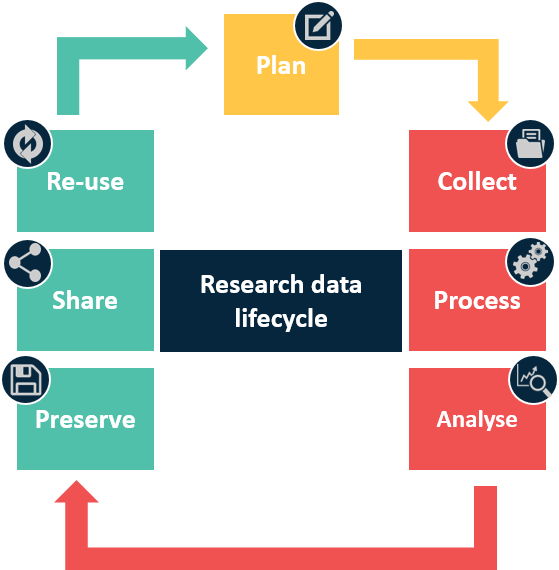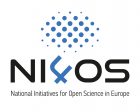University Computing Center (SRCE) as the coordinator of the National Research Data Alliance (RDA) in collaboration with authors from the University Library Rijeka, Split University Library, the City and University Library in Osijek, and the National and University Library in Zagreb created an online self-paced course “Research Data Management”.
Who can take part in the course and which are the requirements?
The course targets researchers, students, and teachers of all fields at all universities, librarians, and data enthusiasts who want to learn more about research data management during the research data life cycle. During the course, participants will acquire the necessary knowledge about the management of research data regardless of the scientific discipline in which they are engaged. The course does not require participants to have prior knowledge related to research data management. The main aim of the course is to educate users about the basic steps, concepts, and ways of managing research data.
The course is self-paced and participants can attend it at their own pace while all lessons are open at the same time, and participants can go through all lessons or view only parts of the course that interest them. Participants who have finished all lessons of the course and successfully passed all knowledge tests will gain a certificate of completion and a digital badge for mastering research data management skills.

Which topics are covered by the training?
- Introduction to research data management
- FAIR data and principles
- Naming conventions, organization, and versioning of research data files and formats
- Documentation and storage of research data
- Managing personal and sensitive research data
- Share and re-use of research data
What elements contain these 6 subjects?
Introduction to research data management explains to participants the definition of what research data are, the stages of the research data life cycle, what a research data management plan is and of what elements it consists of.
FAIR data and principles introduce participants to the term FAIR and FAIRification, explaining all parts of the acronym, and what findability, accessibility, interoperability, and reusability of data are.
The lesson Naming conventions, organization, and versioning of research data files and formats acquaints participants with the rules of naming and organization of files, subfolders, and folders during the research or project. Furthermore, this lesson explains the different ways of versioning files and open and closed formats for the long-term preservation of data.
Documentation and storage of research data explains to the participants what metadata is and how to create a qualitative metadata description. It contains a ReadMe file template that participants can download and use in their own research. Additionally, the importance of data backup is explained and guidelines for the storage of data during the research are provided.
Managing personal and sensitive research data explains personal and sensitive data, direct and indirect identifiers, and anonymization methods in order for the participant to acquire the necessary knowledge and skills to protect the identity of participants in the research.
Share and re-use of research data introduces participants to the last stage of the research data life cycle, which presents the long-term preservation of data, presents available citations, and proper reuse of research data.
The course is in Croatian language and is available in the category “Courses about platforms, tools and good practices in the research data life cycle” at this link
